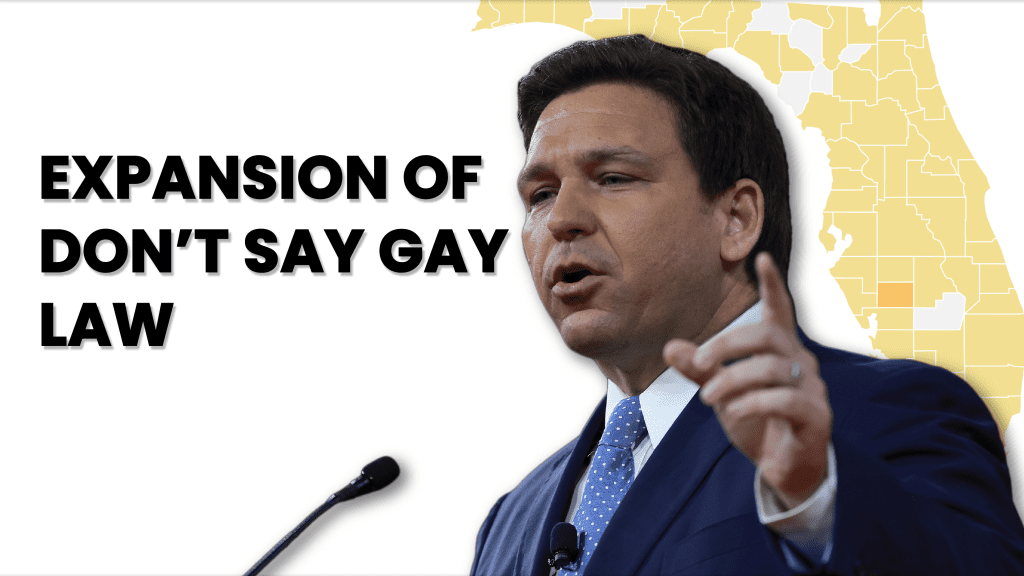In a move that has sparked outrage among the LGBTQ+ community and its allies, the DeSantis administration has expanded the "Don't Say Gay" rule to include all grades in Florida public schools. The rule, which prohibits instruction on sexual orientation and gender identity unless required by State academic standards or part of a reproductive health course, has been criticized by many as a doorway to ban instruction on LGBTQ+ issues and will adversely affect the mental health and suicide rates of LGBTQ+ kids going through school.
The "Don't Say Gay" rule, originally enacted in 2011, banned the use of the term "homosexuality" in Florida's public schools. The rule was meant to prevent teachers from discussing LGBTQ+ issues with their students, which the state's education officials deemed inappropriate for classroom instruction. However, the rule's expansion to all grades in the state's public schools is a new level of restriction on the discussion of LGBTQ+ issues in Florida's classrooms.
Critics argue that the rule will have serious consequences for the mental health of LGBTQ+ kids in Florida, who already face high rates of bullying, harassment, and discrimination in schools. Studies show that LGBTQ+ youth who experience discrimination and harassment are at a higher risk for mental health issues and suicide. Without support and resources from educators, it is likely that many LGBTQ+ youth in Florida will struggle to cope with the difficulties they face.
The rule has also sparked concern among educators who are unsure of how to handle questions and situations involving LGBTQ+ issues without violating the new rule. Teachers who violate the prohibition could have their licenses suspended or revoked, leaving them vulnerable to punishment for providing necessary support and guidance to their students.
In addition to the potential harm to LGBTQ+ youth, the "Don't Say Gay" rule is especially problematic because it is not a law but rather a rule set by the Department of Education, making it harder to repeal. This lack of transparency and accountability means that the rule could remain in place for an extended period, despite the harm it is causing to LGBTQ+ youth in Florida's public schools.
The DeSantis administration's move to expand the "Don't Say Gay" rule comes amid a broader push by conservative lawmakers across the United States to restrict instruction on LGBTQ+ issues in public schools. This push is part of a larger culture war aimed at rolling back the progress made by the LGBTQ+ community in recent years, including legalizing same-sex marriage and expanding civil rights protections for LGBTQ+ people.
In response to this threat, LGBTQ+ organizations and activists are rallying to defend the rights of LGBTQ+ youth in Florida and across the United States. They are calling on educators, parents, and allies to speak out against the rule and demand that LGBTQ+ youth receive the support and resources they need to thrive in schools.
In conclusion, the expansion of the "Don't Say Gay" rule in Florida's public schools is a regressive move that will harm LGBTQ+ youth in the state. It is incumbent upon all of us to stand up and speak out against this rule and demand that our schools provide a safe and supportive environment for all students, regardless of their sexual orientation or gender identity.



















